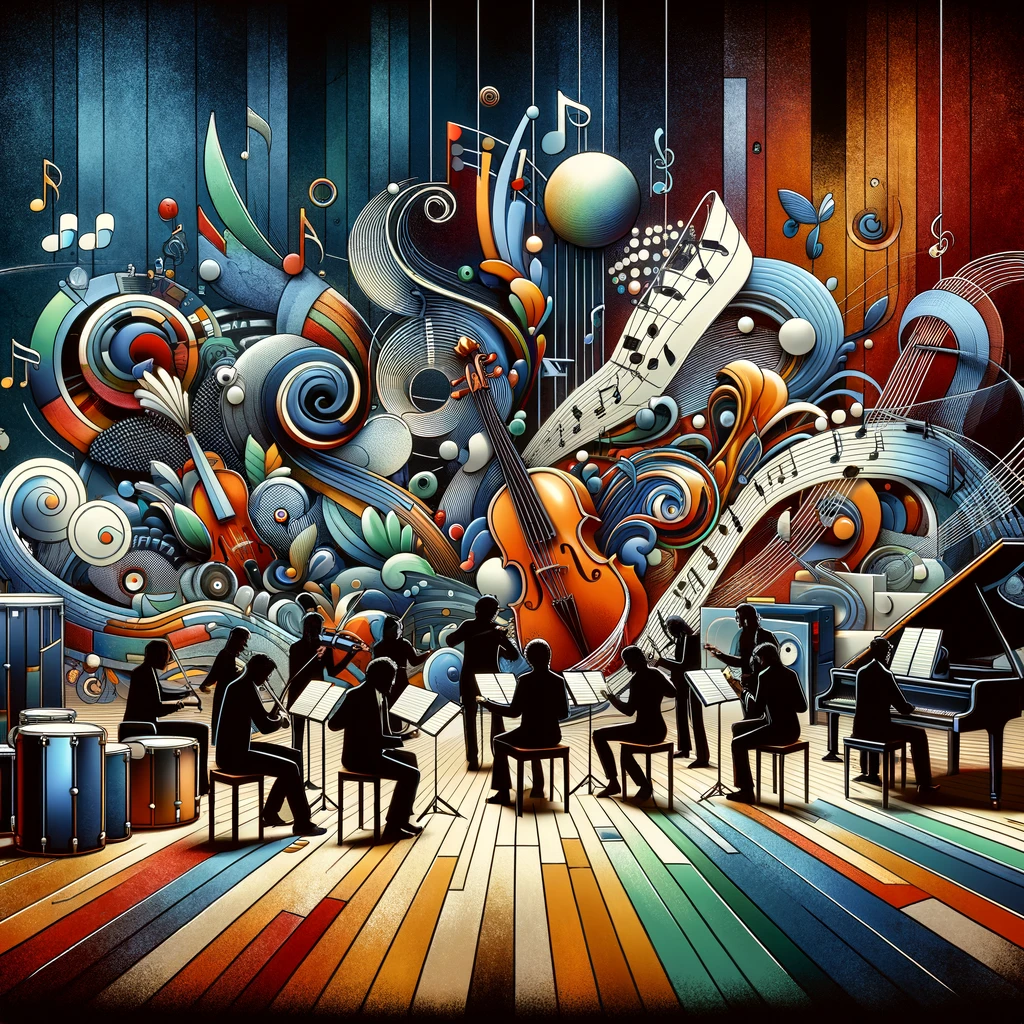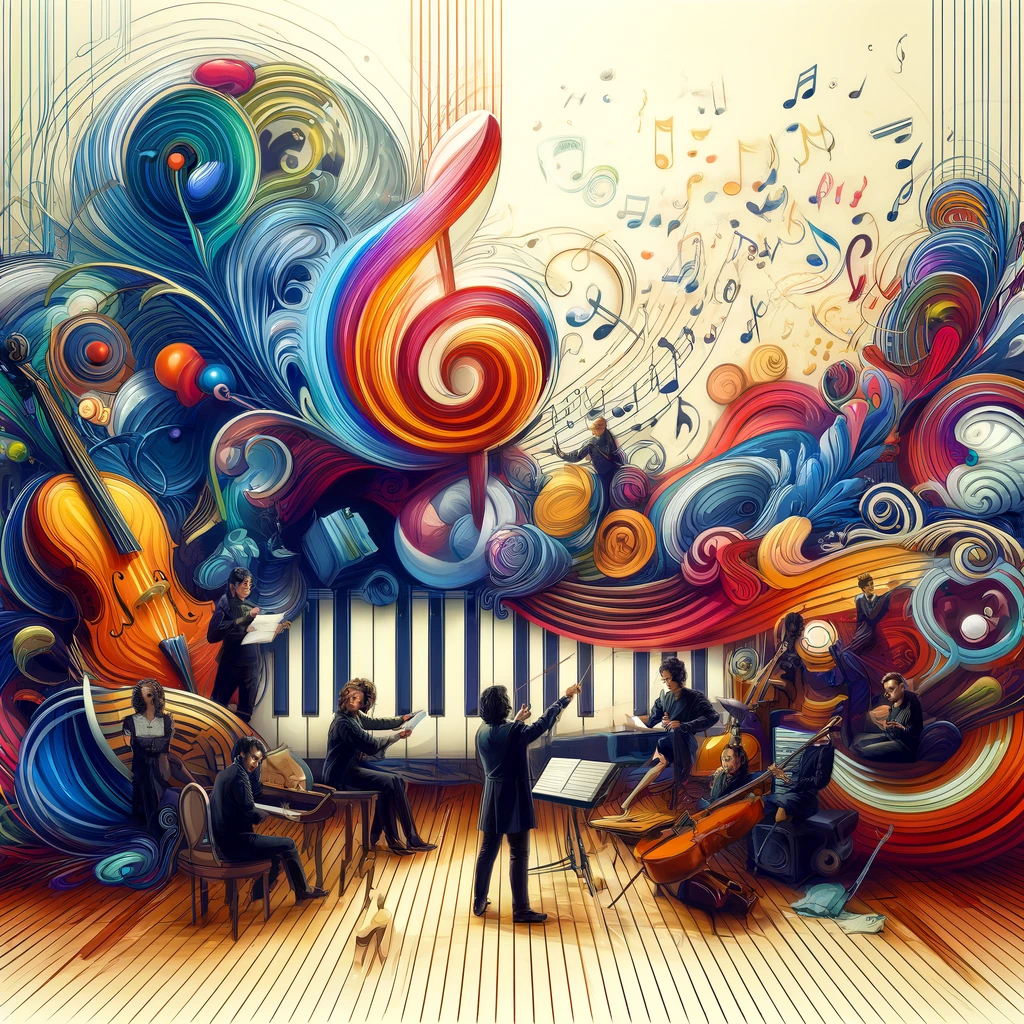
Beethoven’s Enduring Influence on Modern Music
Ludwig van Beethoven’s legacy extends far beyond his time, profoundly influencing generations of composers and musicians. His ability to break new grounds in music, combined with a unique storytelling prowess, has made his work a continual source of inspiration in the musical world.
Beethoven’s Musical Innovations
Beethoven’s journey from adhering to the classical traditions to reshaping them is remarkable. His early piano sonatas, though initially reflective of existing norms, soon began to deviate into uncharted territories, as seen in his ‘Pathétique’ Sonata. This transformation is evident in his dramatic tonalities and innovative harmonic frameworks, notably in works like the ‘Eroica’ Symphony and the ‘Hammerklavier’ Sonata. These compositions showcased a groundbreaking approach to motivic development and thematic tonalities, pushing musical structures to their limits and blurring tonal centers.
Impact on 19th and 20th Century Composers
Beethoven’s approach set a precedent for composers to recast musical traditions in their own image. Composers like Brahms and Mahler sought to impose their individuality on symphonic form, exploring and reshaping it as Beethoven did. The 20th century saw composers like Arnold Schoenberg, Igor Stravinsky, and Karlheinz Stockhausen, who were influenced by Beethoven’s boldness in exploring new musical languages. Their works, often characterized by tension and innovation, can trace a lineage back to Beethoven’s own experimental spirit.
Influence on Contemporary Music
Beethoven’s influence is not confined to classical music. Modern-day artists and bands have also drawn inspiration from his works. The English rock band Genesis, in their album “The Lamb Lies Down on Broadway”, exhibited a storytelling approach reminiscent of Beethoven’s. The album’s instrumental tracks evoke emotional states and imaginary scenes, similar to the moods created in Beethoven’s symphonies.
Nine Inch Nails’ album “The Downward Spiral”, though stylistically different from Beethoven, mirrors his depth of emotion. The use of surging synths and sampled live instruments creates an emotional resonance similar to Beethoven’s expression in compositions like Symphony No. 9.
Pink Floyd, known for their experimental music, also shows Beethoven’s influence. Their album “Atom Heart Mother” pushed the boundaries of rock music, much like Beethoven did with his ‘Heroic’ period works. They employed unconventional elements like a brass section and choir, echoing Beethoven’s innovative orchestration in pieces like the ‘Eroica’ Symphony.
Reflection on Beethoven and Diversity
Recent scholarly and artistic efforts have shed light on the contributions of musicians of color during Beethoven’s era. Notably, the virtuosic Afro-European violinist George Augustus Polgreen Bridgetower, who inspired Beethoven’s “Kreutzer” Sonata, is now receiving overdue recognition. Modern projects like “FORGEWITHGEORGE” have been launched to celebrate such marginalized artists and to reexamine the diverse influences in classical music history.

Beethoven and The Modern Composers’ Psyche
Beethoven’s influence goes beyond his compositions and seeps into the very psyche of modern composers. The intense emotional expressiveness found in his works resonates deeply with today’s artists, reflecting a shared desire to channel personal experiences and inner turmoil into musical expression. This connection highlights not just a musical lineage, but an emotional and philosophical one, tying contemporary artists to Beethoven’s legacy of transforming personal struggles into art.
Blending Genres: Beethoven in Popular Culture
The blend of classical and modern elements, influenced by Beethoven’s groundbreaking approach, is evident in various aspects of popular culture. From film scores to rock operas, elements of Beethoven’s style — his dramatic tensions, thematic developments, and emotive power — have been adapted to suit contemporary tastes and contexts. This blending of genres, mirroring Beethoven’s own innovations in form and harmony, illustrates his enduring relevance in a rapidly evolving musical landscape.
Education and Outreach: Spreading Beethoven’s Legacy
Educational institutions and outreach programs have played a significant role in perpetuating Beethoven’s influence. Through concerts, lectures, and interactive sessions, these institutions have introduced new generations to Beethoven’s works, emphasizing not only his compositional genius but also his role as a revolutionary artist. This educational aspect ensures that Beethoven’s impact is not just preserved but also contextualized for contemporary audiences.
Beethoven in the Digital Age
In the digital age, Beethoven’s music has found new avenues of influence. From online platforms hosting his scores to virtual reality experiences simulating his concerts, technology has made Beethoven’s works more accessible than ever. This digital revival has not only introduced his music to a broader audience but also inspired a wave of digital artists and composers who interpret Beethoven’s works through modern technological lenses.
Conclusion
Ludwig van Beethoven’s influence on contemporary composers and musicians is a testament to his enduring legacy. His revolutionary approach to composition, deep emotional expression, and ability to transcend the constraints of his time continue to inspire and resonate with artists across genres and eras. As we continue to reimagine and reinterpret his works, Beethoven’s spirit lives on, guiding and inspiring the future of music.
References
- CMUSE. “How Beethoven Influenced Music.” www.cmuse.org.
- Classic FM. “Beethoven’s influence on other composers.” www.classicfm.com.
- Harvard Gazette. “Harvard composers reflect on Beethoven at 250.” news.harvard.edu.
- Music is Elementary. “Beethoven’s Influence on Modern Music.” musiciselementary.previewmy.site.